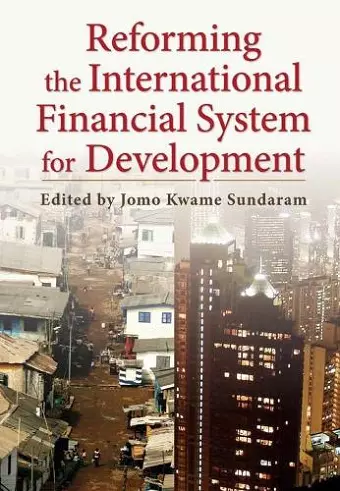Reforming the International Financial System for Development
Format:Hardback
Publisher:Columbia University Press
Published:8th Mar '11
Currently unavailable, and unfortunately no date known when it will be back

The fundamental questions about economic policy discussed in this book are key to the future. If real progress is to be made on issues from financial regulation to the international monetary system, the proposals in this book deserve serious attention. -- Kemal Dervis, vice president, Global Economy and Development, Brookings Institution, and former administrator of the United Nations Development Program Reforming the International Financial System for Development provides a comprehensive treatment under a unified intellectual framework of all aspects of reform priorities, including macroeconomics, financial sector regulation, international financial institutions, and global financial architecture. A compulsory read for policymakers, academics, and all participants in financial markets. -- Y. Venugopal Reddy, professor emeritus, University of Hyderabad, and former governor, Reserve Bank of India Reforming the International Financial System for Development covers all the relevant territory. It is by far the best overall treatment of the important implications of the reform and regulation of the financial system for economic development. -- Jan Kregel, coauthor of International Finance and Development
The 1944 Bretton Woods conference created new institutions for international economic governance. Though flawed, the system led to a golden age in postwar reconstruction, sustained economic growth, job creation, and postcolonial development. Yet financial liberalization since the 1970s has involved deregulation and globalization, which have exacerbated instability, rather than sustained growth. In addition, the failure of Bretton Woods to provide a reserve currency enabled the dollar to fill the void, which has contributed to periodic, massive U.S. trade deficits. Our latest global financial crisis, in which all these weaknesses played a part, underscores how urgently we must reform the international financial system. Prepared for the G24 research program, a consortium of developing countries focused on financial issues, this volume argues that such reforms must be developmental. Chapters review historical trends in global liquidity, financial flows to emerging markets, and the food crisis, identifying the systemic flaws that contributed to the recent downturn. They challenge the effectiveness of recent policy and suggest criteria for regulatory reform, keeping in mind the different circumstances, capacities, and capabilities of various economies. Essays follow ongoing revisions in international banking standards, the improved management of international capital flows, the critical role of the World Trade Organization in liberalizing and globalizing financial services, and the need for international tax cooperation. They also propose new global banking and reserve currency arrangements.
ISBN: 9780231157643
Dimensions: unknown
Weight: unknown
392 pages